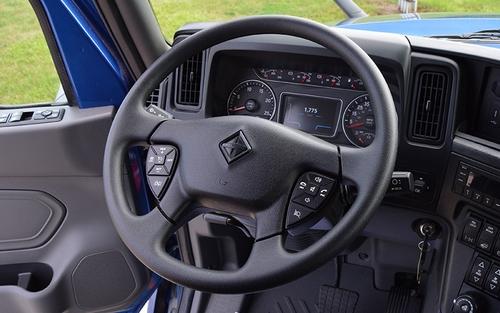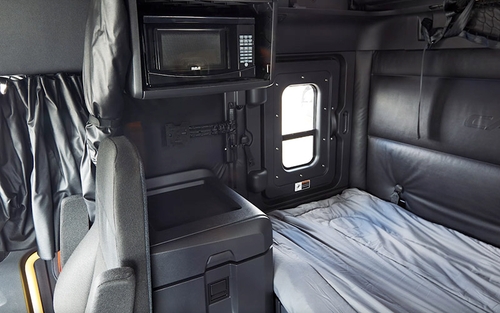Estimated reading time: 2 minutes
As a regional or over-the-road driver, your truck will become a home away from home when you’re out on the road. This means it’s essential to have the right amenities to ensure your comfort.
One piece of equipment that can significantly improve your experience is an Auxiliary Power Unit (APU). But what exactly is an APU on a semi-truck, and how does it work? Keep reading to find out.
What is an APU on a semi-truck?
An APU is a device installed on a semi-truck to provide energy without needing to use the main engine. It allows truck drivers to maintain comfort and a range of capabilities during rest periods without idling.
APUs are commonly used for:
- Climate control: APUs help maintain comfortable temperatures in the cab, regardless of external weather conditions.
- Electrical power: APUs supply power to appliances such as microwaves, refrigerators, TVs and other appliances.
- Battery charging: APUs ensure the truck's batteries remain charged, preventing issues with starting the main engine.
How does an APU work on a semi-truck?
There are two basic types of APUs: Diesel-powered and electric-powered. While both types work in different ways, their purpose is the same — to supply power when the main engine is off.
Diesel-powered APU
Diesel-powered APUs use a small diesel engine to generate electricity. This type of APU connects to the truck’s fuel system. The diesel engine drives a generator that produces electrical power for the truck's auxiliary systems.
Battery-powered APU
Battery-powered APUs use a bank of batteries to store and supply energy. These batteries are typically charged while the truck is running.
Battery APUs are generally quieter than their diesel counterparts and produce no emissions. However, they may have limited power duration compared to diesel APUs before requiring a recharge.
What are the benefits of having an APU?
1. Fuel efficiency.
The main benefit of having an APU is the fuel savings it provides. Running the main engine consumes a considerable amount of fuel, especially when idling for extended periods. APUs use significantly less fuel, helping save money on fuel costs over time.
2. Increased comfort.
APUs provide power for heating, cooling and other electrical needs, ensuring a comfortable living environment within the truck cab. This comfort is crucial for drivers during rest periods, contributing to better sleep and overall well-being.
At Schneider, all full-size sleeper cabs feature either battery-powered TriPac APUs or battery-powered HVAC systems.
3. Reduced engine wear.
Idling the main engine causes wear and tear, leading to a higher likelihood of repairs and breakdowns. Using an APU reduces engine hours, which extends the life of the main engine and leads to less downtime required for repairs.
4. Regulatory compliance.
Many states have anti-idling regulations aimed at reducing emissions. Using an APU helps truck drivers follow these regulations, avoiding fines and legal issues.






